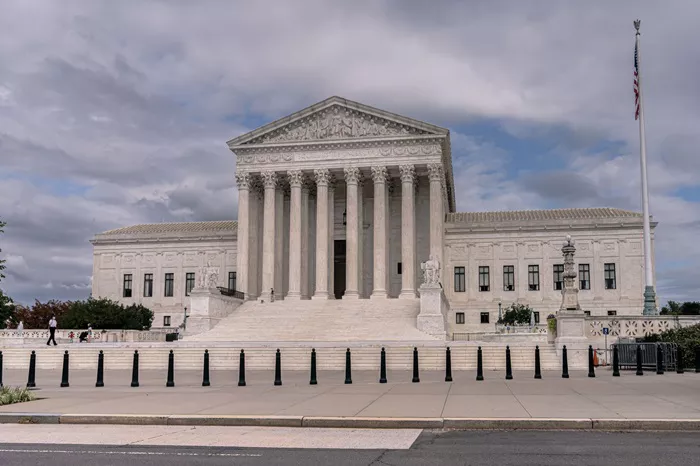The Supreme Court has dismissed a legal challenge against the Environmental Protection Agency’s (EPA) newly established emission reduction rule, which mandates significant reductions in carbon dioxide emissions from both existing and future power plants.
The new regulation, approved earlier this year, imposes substantial additional costs on power plant operators as they are required to cut emissions considerably. In response to the rule, 27 states filed lawsuits, arguing that its implementation could jeopardize the viability of essential power generators crucial for maintaining grid reliability.
Following the filing of these lawsuits, the plaintiffs sought a suspension of the EPA rule while the litigation proceeded. However, the Supreme Court justices denied this request. Justice Brett Kavanaugh, noted that while the states had demonstrated a “strong likelihood of success on the merits” regarding some of their challenges, they were “unlikely to suffer irreparable harm” during the lower court’s deliberations, since the new regulations will not take effect until June 2025.
Earlier this year, opponents of the rule, primarily from Republican-led state administrations and industry associations, achieved a significant victory by securing an exemption for existing natural gas power plants. This exclusion means that only coal-fired plants and new gas-fired plants will face a requirement to reduce emissions by up to 90% through carbon capture technologies. Despite this concession, the 27 states and their industry supporters maintain that the new rule remains problematic.
The implementation of the rule is expected to increase construction costs for new natural gas power plants at a time when demand for such facilities is surging, particularly from the tech sector, which is experiencing heightened electricity needs due to the expansion of artificial intelligence and data centers.
The president of the National Mining Association expressed concerns over the federal government’s failure to acknowledge “irrefutable evidence” of rising electricity demand. He criticized the EPA for disregarding reliability warnings from grid experts regarding the closure of coal plants and for ignoring the fact that there is currently no adequate replacement for the reliable, dispatchable generating capacity that coal plants provide once they are shut down.
Related topic:
Why Does Natural Gas Emit Less CO2 Than Coal?

